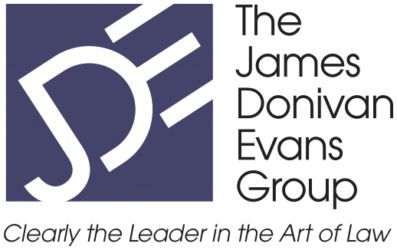 Estate Plans: Generally
Estate Plans: Generally
Plan Now! Trusts Are Not Just For the Old or Wealthy
Estate planning is used to effectively manage and protect asset accumulation and subsequent disbursement to heirs at the owner/author’s death. Includes drawing up documents, including: revocable living trusts, pour-over will, powers of attorney, HIPPA, living will, and gifting property.
Determine Who Will Make Decisions When You Cannot
Accidents or illness can substantially alter your life. With the proper legal counseling, negative impacts can be mitigated. This is particularly important if you have children or are the current caregiver for elderly or disabled family members. Anyone over the age of 18 can choose whom they wish to make emergency medical decisions or authorize who will pay their bills by giving a person designated by the trust access to their account.
Provide for a Minor or Disabled Child
As parents, it is important to designate a guardian in the event you experience a serious life event. Planning is wise to determine who will provide care and manage money to pay for the care of minors and developmentally disabled adult children. Taking such action will prevent a court selecting a guardian and supervising the money at considerable expense.
Actively Address Items of Sentimental Value
Every family has a legacy to treasure that can only be quantified in memories. Misunderstandings are common unless there is a plan to prevent hard feelings, squabbles and broken relationships over non-monetized items of inheritance. Give the gift of certainty for your loved ones.
Understand the Ramifications of Property in Joint Tenancy
If you are married this type of ownership may lead to unnecessary taxes. There can also be unintended consequences resulting in the disinheriting of your loved ones! A counseling oriented attorney will provide options so that your loved ones are protected from future creditors and predators.
Protect and Maximize Your Retirement Plan Distributions
Depending on your retirement or pension provisions, all retirement plans can be subject to both income tax upon distribution and estate taxes at death. Retirement plans can also become accessible to your creditors or to the creditors of your plan’s beneficiaries. The ideal is to minimize or avoid these taxes as well as asset- protect the funds from creditors. There are legal techniques to accomplish both. A competent advisor who understands both legal and financial aspects is critical.
Safeguard Your Planning and Investments
Life changes and everyone is busy. It is important to have a built-in process to update the names of beneficiaries so that money does not go to the “wrong” person. A properly drafted trust can provide divorce, creditor, and bankruptcy protection.
Optimize the Execution of Your Wishes
To maximize the effectiveness of your plan, The James Donivan Evans Group has established a timetable and resources for you to outline your latest life situation, as well as keep your planning current and updated with the ever-changing law. Clients will be positioned to have very current plans within a guided and formal review process.
